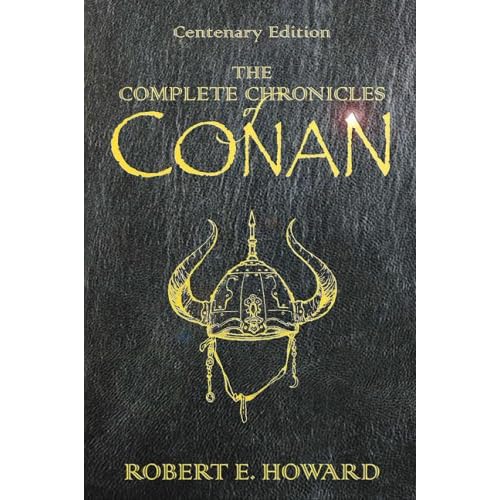-
Hey, guest user. Hope you're enjoying NeoGAF! Have you considered registering for an account? Come join us and add your take to the daily discourse.
You are using an out of date browser. It may not display this or other websites correctly.
You should upgrade or use an alternative browser.
You should upgrade or use an alternative browser.
What are you reading? (December 09)
- Thread starter afternoon delight
- Start date
- Status
- Not open for further replies.
sparky2112
Member
afternoon delight said:Fight Club is different from the movie, not really plot wise but structure and theme-wise. I'm in the minority opinion that the movie actually improved on his text.
Not if GAF is any indication. In the last 'movie better than the book' thread, Fight Club was a common entry. The movie was just a perfect storm; between screenplay, direction, and acting, it's pretty damn near, well, perfect. Chuck P didn't stand a chance.
sparky2112
Member
Alucard said:Next Up:
Charlie and the Great Glass Elevator by Roald Dahl.
Have you read it? If not, DON'T. I remember loving it as a kid in gradeschool and a few years ago I read it to one of my kids. Put simply: it's an absolute piece of trash. It's as bad as Chocolate Factory is great, which is VERY.
crowphoenix
Banned
Picked up

and
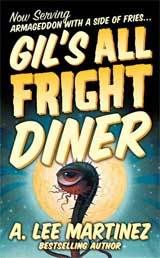
Started reading Gil's, and just like Martinez' other book, it's really fun. The story is about Duke (werewolf) and Earl (vampire), who stop for a bite to eat at Gil's Diner one night, only to be attacked by the zombies that are drawn to it. Soon the pair is facing down Zombie Cows and trying to unravel the mystery of the newest cult to pop up in Rockwood. And the story just gets stranger from there.
I'm only about halfway through, but I'm really enjoying it. It's not as polished as Automatic Detective, and it's extremely southern. Thankfully, it doesn't take itself seriously at all and spends most of its time playing with the stereotypical idea Texans/Southerners and various horror movie tropes.

and

Started reading Gil's, and just like Martinez' other book, it's really fun. The story is about Duke (werewolf) and Earl (vampire), who stop for a bite to eat at Gil's Diner one night, only to be attacked by the zombies that are drawn to it. Soon the pair is facing down Zombie Cows and trying to unravel the mystery of the newest cult to pop up in Rockwood. And the story just gets stranger from there.
I'm only about halfway through, but I'm really enjoying it. It's not as polished as Automatic Detective, and it's extremely southern. Thankfully, it doesn't take itself seriously at all and spends most of its time playing with the stereotypical idea Texans/Southerners and various horror movie tropes.
Atrophis said:
wait, is that all Howard Conan stories compiled into a single volume?
I have been waiting for that for years!
I am about 2/3 of the way through, reading it for the first time.

movie_club
Junior Member
still working on one flew over the cuckoos nest. Had to pause do to alot of work and finals...
sparky2112 said:Have you read it? If not, DON'T. I remember loving it as a kid in gradeschool and a few years ago I read it to one of my kids. Put simply: it's an absolute piece of trash. It's as bad as Chocolate Factory is great, which is VERY.
I just started and have found it enjoyable so far. At the beginning where Wonka starts speaking in his own made-up language.
crowphoenix said:
Started reading Gil's, and just like Martinez' other book, it's really fun. The story is about Duke (werewolf) and Earl (vampire), who stop for a bite to eat at Gil's Diner one night, only to be attacked by the zombies that are drawn to it. Soon the pair is facing down Zombie Cows and trying to unravel the mystery of the newest cult to pop up in Rockwood. And the story just gets stranger from there.
I'm only about halfway through, but I'm really enjoying it. It's not as polished as Automatic Detective, and it's extremely southern. Thankfully, it doesn't take itself seriously at all and spends most of its time playing with the stereotypical idea Texans/Southerners and various horror movie tropes.
between your descriptions of this and the 'automatic detective', i've decided to add this guy to my 'to-read' list - thanks for putting them on my radar.
i'm back on my Americana kick... read some Kerouac, now on to Hemingway, then revisiting Fitzgerald and Steinbeck.

alan moore, ever the genius:
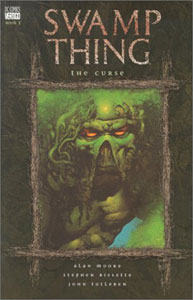
ClosingADoor
Member
Just finished House Corinno. Bit boring.
Now halfway through:
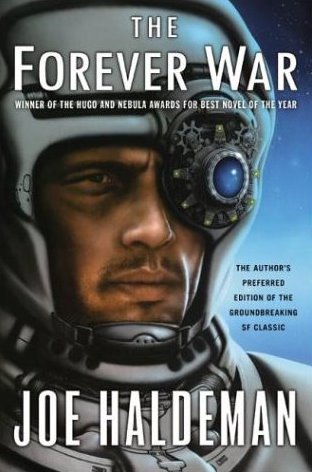
Liking it a lot. Finished the first part
.
Now halfway through:

Liking it a lot. Finished the first part
done the training and they just conquered that first base. I guess the real war is starting now.
Keen said:
About 2/3 thru it and I'm kinda surprised to say that I really really like it. I think Sanderson is doing a great job!
That looks like one of those dodgy NES cart covers from the early 80's.
blazinglord
Member
playstencil
Member
Recently read a shitload of Asimov: Foundation trilogy, i robot, the robot novels.
Right now:
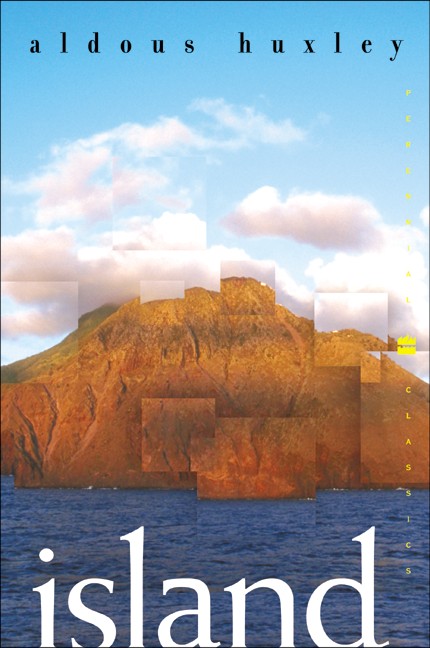
Right now:

ClosingADoor said:
Read this a few months back - fantastic stuff!
Im currently reading

LabouredSubterfuge
Member
Shock Doctrine by Naomi Kline.
Pretty good so far. Makes me an angry man though.
Pretty good so far. Makes me an angry man though.
390 pages into the "The Idiot" by Dostoevsky - I'm liking it alot, been taking it slow though, just to make sure i get as much as can, from my first reading.
My only problem is i find it hard to follow what's going on with the none-myshkin / nastasya / rogozhin / epanchin characters (mostly because of the russian names).
And as a whole, the chapters that don't focus on myshkin / nastasya / rogozhin, just aren't as interesting, but still pretty good.
My only problem is i find it hard to follow what's going on with the none-myshkin / nastasya / rogozhin / epanchin characters (mostly because of the russian names).
And as a whole, the chapters that don't focus on myshkin / nastasya / rogozhin, just aren't as interesting, but still pretty good.
End of the book made me smile. Very few books accomplish that, especially science craption.Alucard said:I am DETERMINED to finally put Neuromancer behind me either today or tomorrow. It has taken me close to TWO MONTHS to finish it. Ugh. 55 pages to go...I think I really do hate this book for its total lack of sense and introduction of far too many characters, concepts, elements, and names in general. I know a lot of people love this book, but I just find it to be a straight-up clusterfuck and a mess.
He spent the bulk of his Swiss account on a new pancreasand liver, the rest on a new Ono-Sendai and a ticket back to the Sprawl.
He found work.
He found a girl who called herself Michael.
And one October night, punching himself past the scarlet tiers of the Eastern Seaboard Fission Authority, he saw three figures, tiny, impossible, who stood at the very edge of one of the vast steps of data. Small as they were, he could make out the boy's grin, his pink gums, the glitter of the long gray eyes that had been Riviera's. Linda still wore his jacket; she waved, as he passed. But the third figure, close behind her, arm across her shoulders, was himself.
Somewhere, very close, the laugh that wasn't laughter.
He never saw Molly again.
Lafiel said:390 pages into the "The Idiot" by Dostoevsky - I'm liking it alot, been taking it slow though, just to make sure i get as much as can, from my first reading.
My only problem is i find it hard to follow what's going on with the none-myshkin / nastasya / rogozhin / epanchin characters (mostly because of the russian names).
And as a whole, the chapters that don't focus on myshkin / nastasya / rogozhin, just aren't as interesting, but still pretty good.
Crime and Punishment is one of the best books ever created, I saw the Karamazov Brothers movie, I didn´t find it particularly interesting, maybe I should read the book. Dostoievski is like everything you could wish in an author. And yes, names can be confusing, they tend to give different variations to the same root.
TunaLover said:Sin & Punishment is one of the best books ever created
No, that's one of the best games ever created. Crime and Punishment, on the other hand, is an awesome book. Sorry ;-) I always wondered if the developers of the game chose the title because of ties to the book... can't think of any, so they probably just thought it sounded cool.

I've just reached the part where
they find the bunker full of food
If McCarthy's intent was for the above spoiler to have the same effect on the reader as it did the man
a glimmer of hope and encouragement
Started it before, but never finished. Interesting enough, but seemed like it dragged.thomaser said:No, that's one of the best games ever created. Crime and Punishment, on the other hand, is an awesome book. Sorry ;-) I always wondered if the developers of the game chose the title because of ties to the book... can't think of any, so they probably just thought it sounded cool.
I want to go back to it at some point, but I had a hard enough time keeping all the russian names straight the first time around that I think I'll be totally lost while on the other hand I have NO interest whatsoever in restarting it.
benita316 said:If McCarthy's intent was for the above spoiler to have the same effect on the reader as it did the manthen he's a genius because I was dangerously close to moving on.a glimmer of hope and encouragement
If you mean it was boring until here then it picks up some. If you're saying it's hard to read cause you're pulling for them and things seem bleak, well then you know why it's such a powerful book.
After all the talk of Fight Club movie vs book, and my mention that I heard A Clockwork Orange was pretty faithful, I decided to finally read the copy I got a few months ago -

Pretty good book overall, and hard to say whether it or the film was better imo. The movie was pretty faithful to the book, and with the exception of only a couple scene's difference that jumped out at me (particularly
)
Thoroughly enjoy both versions, though of course I wouldn't recommend them to just anybody. Also, my acclimation to the slang in the novel from years and years of watching the film may have let me get into the book a bit quicker; didn't have to go to the glossary all that much.

Pretty good book overall, and hard to say whether it or the film was better imo. The movie was pretty faithful to the book, and with the exception of only a couple scene's difference that jumped out at me (particularly
the sex scene with the girls in the record store; in the film, he picks them up and all three just start going at it over and over again consensually. In the novel, he takes home the two 10 year old girls then drugs them before basically raping them and passing out for a few hours.
Thoroughly enjoy both versions, though of course I wouldn't recommend them to just anybody. Also, my acclimation to the slang in the novel from years and years of watching the film may have let me get into the book a bit quicker; didn't have to go to the glossary all that much.
Spanish titles, I always screw things because that =/thomaser said:No, that's one of the best games ever created. Crime and Punishment, on the other hand, is an awesome book. Sorry ;-) I always wondered if the developers of the game chose the title because of ties to the book... can't think of any, so they probably just thought it sounded cool.
Oh, Sin & Punishment (the game) name came from a RARE project, I think it eventually would be the name of Perferct Dark, not sure how the Nintendo-RARE-Treasure ties were at that time. I found it really weird.
Lafiel said:390 pages into the "The Idiot" by Dostoevsky - I'm liking it alot, been taking it slow though, just to make sure i get as much as can, from my first reading.
My only problem is i find it hard to follow what's going on with the none-myshkin / nastasya / rogozhin / epanchin characters (mostly because of the russian names).
And as a whole, the chapters that don't focus on myshkin / nastasya / rogozhin, just aren't as interesting, but still pretty good.
I really love The Idiot. I read it twice, where I had trouble getting started with Crime and Punishment AND Brothers Karamazov. Dostoevsky made me go back and read up on my Russian history just so I could understand the social settings more and what was going on at the time.
I really need to go back to Dostoevsky. I also have the multi-volume biography that I need to finish too. Sigh.

I've actually already read it, but I finally managed to get my own copy, so I'm re-reading.
It's mostly a ghost story, where a teenage girl moves into a 300 year old house in Dorset with some classic folklore creatures thrown in, such as the billy blind and the Wild Hunt.
You don't have to believe in Hell. All you need is to hear someone who really does, who believes in it this minute, today, the way people believed in 1685—all you have to do is see his face, hear his voice when he says the word… and then you know that anyone who can imagine Hell has the power to make it real for other people.
LocoMrPollock
Banned

My first fantasy book. Wasn't really expecting all the incest and pedo stuff. Book is otherwise good, though.
oracrest said:wait, is that all Howard Conan stories compiled into a single volume?
I have been waiting for that for years!
It certainly is. In chronological order too.
Link.
Yep i've read and loved crime and punishment. I'm actually considering re-reading after i finish the idiot.TunaLover said:Crime and Punishment is one of the best books ever created, I saw the Karamazov Brothers movie, I didn´t find it particularly interesting, maybe I should read the book. Dostoievski is like everything you could wish in an author. And yes, names can be confusing, they tend to give different variations to the same root.
Karamazov brothers sounds incredible, but i'm holding off it, because of it's massive length.:lol same thing with a another Russian novel - war and peace.
D
Deleted member 1235
Unconfirmed Member

This book is pissing me off.
I LOVED the one before it but this one is a massive cock tease. Somethings that are massively spoilerific (I'm talking really really spoilers, don't read unless you read it already)
wtf at all the deaths in between books? That shit was half the cast. half the cast I was invested in. Also all the POVs are from people I barely care about now. Where the fuck is Jon snow damnit
one specific question I have that I would love answered in a non spoilery way if possible
I'm halfway through, will I find out what the 'red wedding' was? Please don't give it away, but is it covered? I generally get that it's probably where Robb died, but fucking hell. Need details book!
To be clear, I like this book, I love them all, but not as much as the first 3 for me so far (at half way)
Salazar said:'Fortress Besieged' by Qian Zhongshu. Immensely funny and apparently revered novel about a Chinese anti-hero, who returns from abroad with a fake degree and gets himself into cascading woman-trouble.
gonna check this out, sounds fun
Yasser said:gonna check this out, sounds fun
Yep. I finished it, and stand by the recommendation. Big book - crammed with wry digs at academic and Chinese family culture.
To be clear, I like this book, I love them all, but not as much as the first 3 for me so far (at half way)
umm, please don't tell me you skipped storm of swords part 2, because i have no idea why you wouldn't know what the
Red Wedding
Pikelet said:umm, please don't tell me you skipped storm of swords part 2
Edit: Whoops, I take it back; I thought he was reading the US editions based on the cover image and then saw the spoiler text. Yeah, catfish, hie thee to a bookstore posthaste and make sure you read all of A Storm of Swords.
FnordChan, about halfway through First Lord's Fury
Better left forgotten...

Charlie and the Great Glass Elevator by Roald Dahl
The Review:
One of the things I enjoyed about Charlie and the Chocolate Factory was its sense of pacing; it had a natural flow and order to it. Not only that, but the events were not entirely predictable and they were always entertaining. However, in this direct sequel to Dahl's much-loved story, I am sad to say that while Dahl tries really hard to maintain a sense of fun and fantasy, there is very little guiding this whole storyline, and it honestly feels like an afterthought. Reading this after Charlie and the Chocolate Factory is like eating a really good meal, and then being offered seconds despite being completely full. All of the flavours from the start of the meal, while similar, just do not have the same impact on your taste buds and you feel like you are just stuffing yourself for the sake of it. You also end up regretting it afterwards.
So, what went wrong with this book? As mentioned, I think the biggest culprit of its mediocrity is its lack of focus. Allow me to explain. It literally picks up right where the first book left off, and has the entire Bucket family floating through space in Willy Wonka's Great Glass Elevator. They end up inside a space hotel, which is about to be docked by American astronauts. Inside the hotel they meet up with some unsavory alien characters, the Vermicious Knids, who proceed to scare them out. There is a chase scene in which the Knids are burned up in Earth's atmosphere. Back on Earth, and now in Willy Wonka's chocolate factory, Mr. Wonka offers the elder Buckets a chance to be younger. There is a long, drawn out sequence of Charlie's grandparents taking too much of an anti-aging pill, and then having to find the pill that will bring them back up to their original ages. One of the grandparents ends up taking too much of that pill, and must take the original anti-aging pill again to end up back where she started. If this sounds needless and like a waste of space, that is because it is. It was predictable and did not serve much of a purpose.
Charlie and the Chocolate Factory had purpose; it had a reason for its events. This book has paperthin reasons for the actions of its characters, and it feels like a bunch of stuff happening for the sake of a bunch of stuff happening. Now, I am not displeased with the book because it is not like Charlie and the Chocolate Factory. No. I am displeased with the book because even as a standalone adventure, it is weak and unfocused, and not very fun or entertaining. Sure, there are a couple of songs and rhymes, and the Oompa-Loompas even make a return appearance, but the end result is still one of needless excess.
In addition to its lack of focus, Charlie and the Great Glass Elevator chooses to centre around the least interesting characters in this literary universe: the Bucket grandparents. None of them have any characteristics that truly distinguish them from one another, and the majority of the time they are nuisances and they act like bratty children. The final third of the book in particular is frustrating because of the back-and-forth quest aspect of the anti-aging and aging medications. Nevermind that this feels like two different stories mashed into one, and I am left with a feeling of "so what," which is never good for any book.
Finally, I did not come away with anything to really think about when I finished Charlie and the Great Glass Elevator. Most children's books have some moral choices for the character's to make, or a greater lesson to be learned. This book has very little of either, and it feels futile as a consequence.
So, is there anything good at all about this story? Well, I suppose it is nice to see Charlie Bucket, Granpa Joe, and Willy Wonka back in action. Quentin Blake's art is also incredibly charming and whimsical. Aside from these two things, I found this book to be a major downgrade after such a memorable predecessor. Perhaps its greatest crime is that it takes such a perfect ending in the first book, and turns it into such an uncalculated mess.
The Verdict:
While it is nice to read about these characters again, and to admire Quentin Blake's artwork, the final product feels unpolished, unfocused, and completely forgettable. By choosing to focus on uninteresting characters and providing a plot that is a giant mish-mash of half ideas, Dahl sadly provides a tale that slightly tarnishes the preceding work, and one that would have been better left in a private notebook somewhere.
1.5/5
Next Up:
The Dreamfighter and Other Creation Tales by Ted Hughes.
Charlie and the Great Glass Elevator by Roald Dahl
The Review:
One of the things I enjoyed about Charlie and the Chocolate Factory was its sense of pacing; it had a natural flow and order to it. Not only that, but the events were not entirely predictable and they were always entertaining. However, in this direct sequel to Dahl's much-loved story, I am sad to say that while Dahl tries really hard to maintain a sense of fun and fantasy, there is very little guiding this whole storyline, and it honestly feels like an afterthought. Reading this after Charlie and the Chocolate Factory is like eating a really good meal, and then being offered seconds despite being completely full. All of the flavours from the start of the meal, while similar, just do not have the same impact on your taste buds and you feel like you are just stuffing yourself for the sake of it. You also end up regretting it afterwards.
So, what went wrong with this book? As mentioned, I think the biggest culprit of its mediocrity is its lack of focus. Allow me to explain. It literally picks up right where the first book left off, and has the entire Bucket family floating through space in Willy Wonka's Great Glass Elevator. They end up inside a space hotel, which is about to be docked by American astronauts. Inside the hotel they meet up with some unsavory alien characters, the Vermicious Knids, who proceed to scare them out. There is a chase scene in which the Knids are burned up in Earth's atmosphere. Back on Earth, and now in Willy Wonka's chocolate factory, Mr. Wonka offers the elder Buckets a chance to be younger. There is a long, drawn out sequence of Charlie's grandparents taking too much of an anti-aging pill, and then having to find the pill that will bring them back up to their original ages. One of the grandparents ends up taking too much of that pill, and must take the original anti-aging pill again to end up back where she started. If this sounds needless and like a waste of space, that is because it is. It was predictable and did not serve much of a purpose.
Charlie and the Chocolate Factory had purpose; it had a reason for its events. This book has paperthin reasons for the actions of its characters, and it feels like a bunch of stuff happening for the sake of a bunch of stuff happening. Now, I am not displeased with the book because it is not like Charlie and the Chocolate Factory. No. I am displeased with the book because even as a standalone adventure, it is weak and unfocused, and not very fun or entertaining. Sure, there are a couple of songs and rhymes, and the Oompa-Loompas even make a return appearance, but the end result is still one of needless excess.
In addition to its lack of focus, Charlie and the Great Glass Elevator chooses to centre around the least interesting characters in this literary universe: the Bucket grandparents. None of them have any characteristics that truly distinguish them from one another, and the majority of the time they are nuisances and they act like bratty children. The final third of the book in particular is frustrating because of the back-and-forth quest aspect of the anti-aging and aging medications. Nevermind that this feels like two different stories mashed into one, and I am left with a feeling of "so what," which is never good for any book.
Finally, I did not come away with anything to really think about when I finished Charlie and the Great Glass Elevator. Most children's books have some moral choices for the character's to make, or a greater lesson to be learned. This book has very little of either, and it feels futile as a consequence.
So, is there anything good at all about this story? Well, I suppose it is nice to see Charlie Bucket, Granpa Joe, and Willy Wonka back in action. Quentin Blake's art is also incredibly charming and whimsical. Aside from these two things, I found this book to be a major downgrade after such a memorable predecessor. Perhaps its greatest crime is that it takes such a perfect ending in the first book, and turns it into such an uncalculated mess.
The Verdict:
While it is nice to read about these characters again, and to admire Quentin Blake's artwork, the final product feels unpolished, unfocused, and completely forgettable. By choosing to focus on uninteresting characters and providing a plot that is a giant mish-mash of half ideas, Dahl sadly provides a tale that slightly tarnishes the preceding work, and one that would have been better left in a private notebook somewhere.
1.5/5
Next Up:
The Dreamfighter and Other Creation Tales by Ted Hughes.
ClosingADoor
Member
Finished The Forever War. Bit of a letdown ending, still one of the best books I read: 4.5/5
Edit: Also, wtf, there is a movie being made of it. Can't wait to see that.

Started on Hunters of Dune. Been thinking about reading it or not for about a year. Tried the House Atreides, Harkonnen en Corrino books by Brian Herbert and Kevin J Anderson. Where decent, hope they made this better.
Not sure if I should reread the whole saga again. Can't remember that much of the stuff after Children of Dune.
Also, for some reason came across this and opened it up:

Nothing really surprising. You'll get rich by working hard and loving what you do. Well, let's see how that works out for me the next few years I guess.
Edit: Also, wtf, there is a movie being made of it. Can't wait to see that.

Started on Hunters of Dune. Been thinking about reading it or not for about a year. Tried the House Atreides, Harkonnen en Corrino books by Brian Herbert and Kevin J Anderson. Where decent, hope they made this better.
Not sure if I should reread the whole saga again. Can't remember that much of the stuff after Children of Dune.
Also, for some reason came across this and opened it up:

Nothing really surprising. You'll get rich by working hard and loving what you do. Well, let's see how that works out for me the next few years I guess.
StormyTheRabbit
Member
Goddammit, theres to many books for me to read right now and I can't decide where to start.
I want to read:
about 2-3 more Ender's Series books
World War Z
A Song Of Fire And Ice series
2 more of the Ambergris books
The original Dune books
and I think there were a few more.
FUCK.
I want to read:
about 2-3 more Ender's Series books
World War Z
A Song Of Fire And Ice series
2 more of the Ambergris books
The original Dune books
and I think there were a few more.
FUCK.
StormyTheRabbit said:Goddammit, theres to many books for me to read right now and I can't decide where to start.
I want to read:
about 2-3 more Ender's Series books
World War Z
A Song Of Fire And Ice series
2 more of the Ambergris books
The original Dune books
and I think there were a few more.
FUCK.
Yeah, that's about how I am right now myself. Ended up that right now I'm in the middle of several different series since I decided to try and start a few to see if I liked them enough to continue or not.
Peronthious
Member

I'd heard of it in passing before, but it was recommended to me by someone on the gaming side so I decided to finally get around to checking it out. While I am a bit puzzled by the recommendation - it was made as part of an argument which the book, at least what I've read so far, refutes - the book itself is fascinating. It covers the concept of play as it pertains to human culture, looking at elements in language, religion, as well as a host of other areas.

Specifically Mountains of Madness, and not this version, which was the most specific cover I could find. It's my first dive into the world of Lovecraft, and I'm loving it, especially the writing style. His writing style is quite dense, and comes across like he really is the character he's portraying. The lengthy exposition was interesting in itself; I admit I don't make it a habit to read horror novels, but the ones I have read haven't ever had anything like the back story here.
Pikelet said:umm, please don't tell me you skipped storm of swords part 2, because i have no idea why you wouldn't know what theis. Its been a long time since i read the books but im pretty sure thats around about when that event occurs in the seriesRed Wedding
Holy shit, I've never seen or heard about someone who did that :O That sucks sooo bad :lol
A book related to all the above themes: Ryu Murakami's 'Coin Locker Babies'Salazar said:If the louche, sardonic attitude is what attracts you, read Martin Amis' 'Money'.
If moral deterioration and bitter, comic misanthropy is the thing, read John Lanchester's 'The Debt to Pleasure'.
Satire on sexual mores: Luke Rhinehart's 'The Dice Man'.
Existential, slow-rumbling strangeness: Kobo Abe's 'Woman in the Dunes'.
McBacon said:
I don't know what the fuck is going on in this book.
Really? I found it to be quite easy to follow, and it is one of my all-time favourite novels by a very intelligent and charming author. I simply loved the message about the need to preserve knowledge and to fight against our desire for the more mundane things in life.
FairyD said: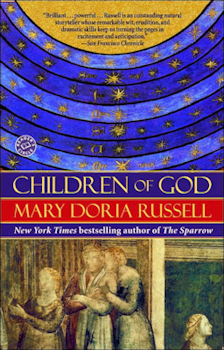
Children of God. It's a sequel to another book called The Sparrow, I've been reading it on and off when I'm on the subway. Good book so far.
How was The Sparrow? I've heard really good things from sci-fi fans for some reason.
- Status
- Not open for further replies.



